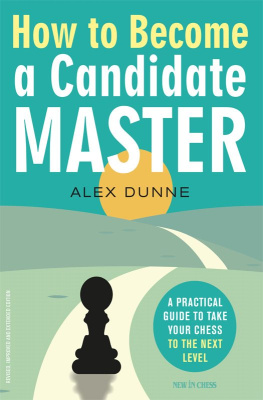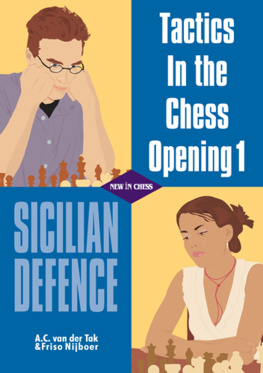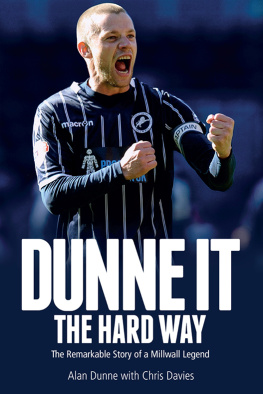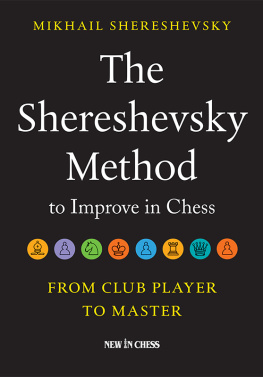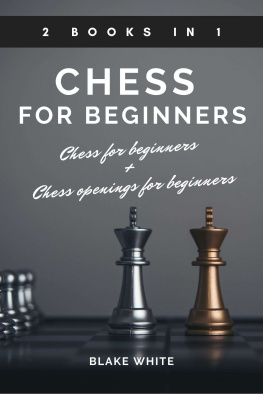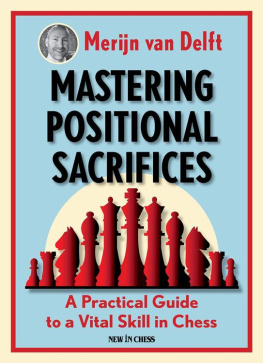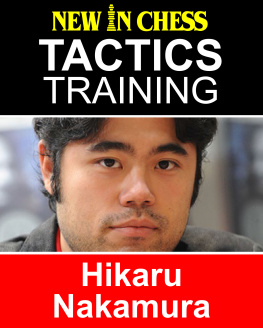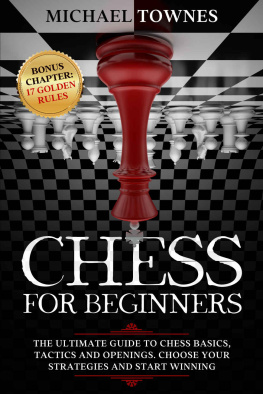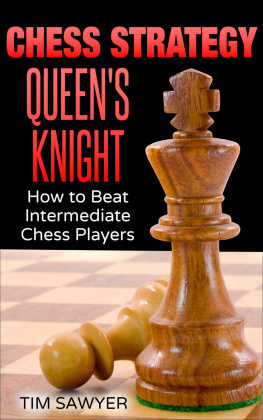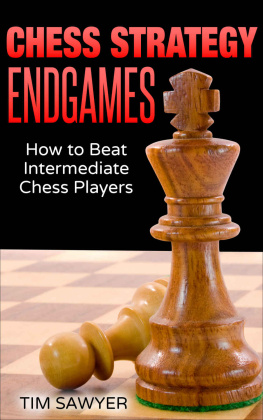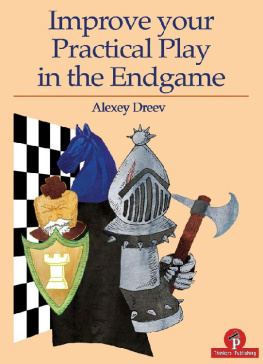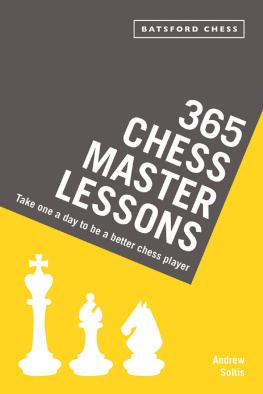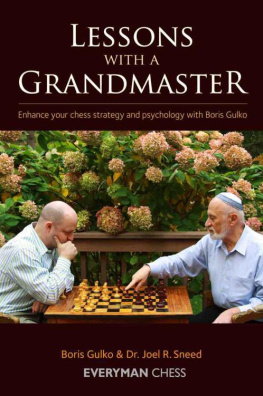Alex Dunne
How to Become a Candidate Master
A Practical Guide to Take Your Chess to the Next Level
New In Chess 2020
To Quentin and Allison
2020 New In Chess
First Edition 1985
Revised, improved and extended edition August 2020
Published by New In Chess, Alkmaar, The Netherlands
www.newinchess.com
All rights reserved. No part of this book may be reproduced, stored in a retrieval system or transmitted in any form or by any means, electronic, mechanical, photocopying, recording or otherwise, without the prior written permission from the publisher.
Cover design: Buro Blikgoed
Supervision: Peter Boel
Editing, typesetting: Frank Erwich
Proofreading: Dennis Keetman, John Upper
Production: Anton Schermer
Have you found any errors in this book?
Please send your remarks to and implement them in a possible next edition.
ISBN: 978-90-5691-921-4
Preface
In the summer of 1978 I began teaching at the Bradford Chess Camp organized by Robert Ferguson. The camp offered lessons to players from beginner to 1900+ and it was very successful. I continued teaching at Bradford for many years until the camp split and became the Castle Chess Camp held at Atlanta, Georgia. Here, too, the classes were offered for a wide range of rated students. One of the first things I noticed from Bradford to Atlanta was that you could not offer the same lesson to the aspiring young master as to the enthusiastic beginner.
When I first thought of writing a book to help young players, I realized that most, if not all, of the existent books were either written by masters to show off their skills, and annotated at a master level, or were written to aid the beginner to gain a glimmer of insight into the game. There just didnt seem to be a middle ground.
And I thought back to the game of Go. There was a series of books designed to raise a Go players strength through different kyu levels. (A one kyu level player was roughly the equivalent of a 2000 rated player. The level just below, the two kyu, was about 1900.) I remembered seeing one book designed to raise a player from 5 kyu to 3 kyu. And I thought, why not a chess book to do the same thing? And so the idea of How to Become a Candidate Master was born.
I elected to write a book dedicated to 1800 rated players who desire to improve their chess to become experts (2000+ USCF; please note that FIDE ratings are 50-100 points lower).
I would like to thank my lovely wife Colleen, who makes the best gravy in the world, my daughter Samantha, who has produced some amazing grandchildren, my son Quentin, whose late night telephone calls made the distance to California minute, and my boy (now a 21-year-old man) Nicholas who has discovered some of the great books of the world, though not of chess.
Alex Dunne,
Sayre (PA) USA, April 2020
Introduction
For ambitious club players
It is a common dream of chess players to visualize themselves as master players, defeating their opponents and winning tournaments. Such is the stuff of dreams, but before we can run, we must first learn how to walk. As an 1800+ player you have already lifted yourself above the majority of tournament players. As a matter of statistics, with a rating of 1800+, 83% of all tournament players are ranked below you.
Above you, however, are some pretty strong players the World Champion, the grandmasters, the masters, and our target, the Candidate Masters (experts, as they are called in the USA). Roughly speaking, the World Champion is defined as the player who consistently (3 out of 5 or better) defeats all the grandmasters he faces. A grandmaster, roughly defined again, defeats masters in 3 out of 5 games or better. The master will consistently defeat the Candidate Master by the same ratio or better and the Candidate Master has been defeating you by that same edge. Why?
The simplistic answer is that the Candidate Master (2000-2200 USCF) plays better chess than the 1800 player. It is the design of this book to reveal the difference in play to the 1800 player to enable him to become a Candidate Master.
The typical chess book uses a different approach. Most books select master games analyzed by masters in an attempt to raise a player immediately to the master level. Though these books are extremely valuable and sometimes very well written, the fact is that there is simply no easy road to masterhood.
As an 1800+ player, you are quite aware of the struggle, work, study, and pain it took to get you this far. Of course, there are rewards and joys in playing as well as you do, too. It is not easy to become a Candidate Master, but with the aid of this book, some perseverance, work and study, some joy in your chess, that goal can be obtained.
The first edition of this book, published in 1985, was quite popular, going through three printings plus an annex in a short time. The annex was the idea of the publisher. Originally I asked a number of questions to the reader, but I withheld the answers. I believe the addition of the answers helped make the book more successful, and therefore the answers have all been incorporated into the present edition. The questions are indicated with the term Analyze in bold inside the games, and the answers are given at the end of each game with the term Analysis in bold.
Some other changes have been made for the present edition. The addition of two games where the reader is matched against a strong Candidate Master make the book a better guide for the reader who wants to become stronger and wants to improve his rating. The analysis has been checked with modern computer engines for accuracy. Also, a more modern view of some of the openings has been used. The book has been made more accessible by adding a great many diagrams. Id like to thank Frank Erwich from New In Chess for doing a wonderful job here.
This book, then, differs from others in that the games contained within are mostly games between 1800+ players and Candidate Masters. These games were mainly selected from 1982 US tournaments with some more modern games included. In these games we will see the typical strengths and weaknesses of the 1800+ player and we will discuss how the Candidate Master, usually, takes advantage of them.
When you play over these games, you will take the side of the Candidate Master. If you are going to learn to play like a Candidate Master you may as well sit in his chair. A word of warning you will not win every game from the Candidate Masters seat. No Candidate Master can so dominate 1800+ players, just as no 1800+ player can expect 100% results from 1600 players; there are lessons to be learned from losses and draws as well as wins.
I have one final word about studying these games. There are fifty-two chapters in this book, fifty-two tournament games. These games were played with a clock running, ticking away. It is one thing to study games in the quiet of your den. It is another thing, again, to play a tournament game. Since your intention, presumably, is to become a Candidate Master in the tournament area, not an armchair 2000+ player, the best way to study this book is one (or possibly two) games a day, with a chess clock running by your side. Take a 3x5 index card to cover up the moves. A small rectangle can be cut out of the left hand side to reveal Whites move and still cover up Blacks response when you are playing the black pieces. If you want to record your choices, you may. This would give you a guide to compare your choice of moves against the Candidate Masters choice. If you have the book as an ebook, try reading it one move at a time, planning your next move before reading on, possibly on a small portable chess set.
It was both a pleasure and a daunting task to update How To Become a Candidate Master
Next page
